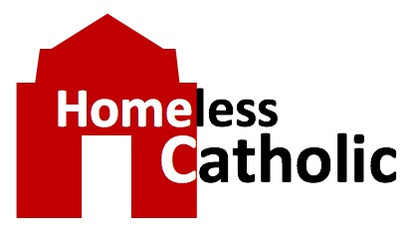Don't leave them hanging
Authority isn't cool. Whether we’re agents of authority or authority figures, our presence will probably trigger negative reactions. Our world sees nothing sacred about authority anymore.
If our child asks us where our authority comes from don't we answer them with clarity? Don't we say that God gave them to us, and that we're charged with the responsibility of their care? All authority roles should probably react just like that.
Image by FlavioGaudencio
Do we acknowledge we are charge?
By John Pearring
https://bible.usccb.org/bible/readings/052921.cfm
Sirach 51:12cd-20
Mark 11:27-33
What do we do when our child gets angry and ask us, "Who made you my boss?" Do we leave them hanging and not tell them who we are?
If we've made mistakes as parents, do we punt and say it's not our fault? "Sorry, son, I'm just a temporary placeholder until you grow up."
No, we wouldn't do that.
Unfortunately, in other authority roles we may have already punted. Authority isn't cool. Whether we’re agents of authority or authority figures, our assignment will come into question. Our world sees nothing sacred about authority anymore. We know it, and we're not always courageous in taking the heat for what we do.
Skepticism about the motives of benevolent-looking authority comes from experience. We have accepted the assertion nobody is beyond a bribe or political influence. One failure after a hundred faithful executions of authority will probably condemn us. People in public positions of authority will eventually be attacked. The smallest infractions of authority figures get blown up, shot like confetti onto social media, and then that publicity confirms the stupid axiom that authorities are cads.
It’s the media.
Is it really just the media? They’re the ones who dredge up dirt and exaggerate the importance of 20-year-old missteps. Journo types feed us a propaganda that says, "Authorities can’t be trusted." That’s a fraudulent narrative. This message comes from us, though, not just the media. Disgust for authority can be found in every audience that authorities serve. That disgust is ancient, not recent. And, it subverts the reality that the source of all authority is God.
Some authority structures work quite well, like traffic control, airline safety, and the Food and Drug Administration. You may think I'm kidding because each authority I just mentioned has a terrible reputation. But the truth says the opposite. These are well-oiled machines. Their daily smooth operations get no mention. You only hear about the failures.
Polls about trust for the authorities in religion, education, and business fare no better, ranking as low as our well-known disdain for the U.S. Congress.
In Jesus’ day, authorities stood at the gate of the city, instructed and directed the faithful, approved all acts of commerce, and structured home life. According to scriptural references, both nation and religious leaders included overlords who used force to control people and expected celebrity favors from their charges. Folks in scripture frequently expressed doubts about the honesty and integrity of government, religious and military leaders. Great periods of time passed, though, where authorities were kind and fair.
So, are our lives today any different than the Jewish or Gentile communities of Jesus’ lifetime? Not really. We’re fed a constant barrage of misdemeanor infringements about our authorities, as if they were felonies. But so much of the complicated matrix of authority we live under functions with high quality. We’re the ones reacting to public scandal with aplomb. Our appetite for bad behavior caught red-handed drives the media’s constant scurry for fresh dirt. Much of the dirt is fake, too. From every political side. Nonetheless, advertisers pay dearly for space in the hair-on-fire media sites because we're clicking and watching. The "fake news" is a reaction to our eagerness to hear gossip traded as if it were news.
Fun fact: authorities are humans. In fact, we’re all involved in authority positions. Very few of us lack some form of authority. At least one person relies upon our direction. If our child asks us where our authority comes from don't we answer them with clarity? Don't we say that God gave them to us, and that we're charged with the responsibility of their care? All authority roles should probably explain themselves just like that.
This won't help the addiction to fake news. Only our avoidance of it and refusal to watch will do that.
We're not unblemished parents any more than we're unblemished in any authority. No one is. Who among us has a perfect record of either providing just authority or exercising mature reliance on authority? All of us regret some misdeed or poorly executed act as an authority figure. Did we apologize? Did we fess up to those under our authority? Did we ask for God’s assistance, the one who is the source of any authority we weild?
More likely we pled ignorance:
“I didn’t have the proper information.”
“I don’t remember.”
“It wasn’t me.”
“I can’t recall.”
The gospel from Mark today points out the frailty all of us face when our limitations damage our authority. When Jesus corners the priests, scribes and elders regarding their position on the authority of John the Baptist they respond with the ignorance excuse.
“We do not know.” What held them back from admitting the truth? “They feared the crowd …”
We’re no different in the forced exercise of our authority. When push comes to shove we're probably prone to back off, too. We fear retribution. Jesus supplies us with the solution to this problem. Tell the truth. The religious leaders should have said they thought John the Baptist was a fraud. That's what they thought, didn't they? If we don’t speak the truth about what we believe as authorities, fessing up to everyone, Jesus will not be able to help us either.
Then Jesus said to them,
“Neither shall I tell you by what authority I do these things.” (Mark 11:33)
Maybe we think he’s just being clever, even dismissive of the authority he’s faced with. But no, he’s doing more than that. Jesus reveals the problem with the religious leaders dishonest authority—cowardice. Unless we speak honestly as authorities, ready to face our role as authorities, God is left out of our domain. How can he correct us, redirect us, or support us if we not only claim ignorance of our responsibilities, we also lie?
Jesus could have told them who he really was if they recognized the source of their authority. But they punted their authority away. Jesus had nothing helpful to say to them. He knew that they lied.
We know we can't leave our children wondering who the heck we are. We must also be forthright about our other roles of authority.

